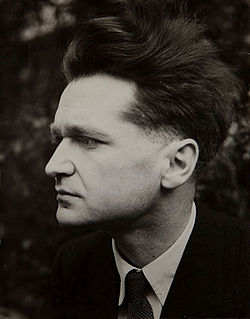A Quote by Arthur Koestler
Habit is the denial of creativity and the negation of freedom; a self-imposed straitjacket of which the wearer is unaware.
Related Quotes
I am interested in the creativity of the criminal attitude because I recognize in it the existence of a special condition of crazy creativity. A creativity without morals fired only by the energy of freedom and the rejection of all codes and laws. For freedom rejects the dictated roles of the law and of the imposed order and for this reason is isolated.
The very act of faith by which we receive Christ is an act of the utter renunciation of self, and all its works, as a ground of salvation. It is really a denial of self, and a grounding of its arms in the last citadel into which it can be driven, and is, in its principle, inclusive of every subsequent act of self-denial by which sin is forsaken or overcome.
If the denial of death is self-hatred, as it is to deny our freedom and live in fear of death (which is to say, to live in a form of bondage), then the acceptance and affirmation of death is indeed a form of self-love. But I'd want to make a distinction between a form of self-love which is essential to what it means to be human, and a narcissism of self-regard, like Rousseau's distinction between amour de soi and amour propre, self-love and pride.
The Fathers of the Church can well afford to preach the gospel of Christ. It contains nothing dangerous to the regime of authority and wealth; it stands for self-denial and self-abnegation, for penance and regret, and is absolutely inert in the face of every [in]dignity, every outrage imposed upon mankind.






































